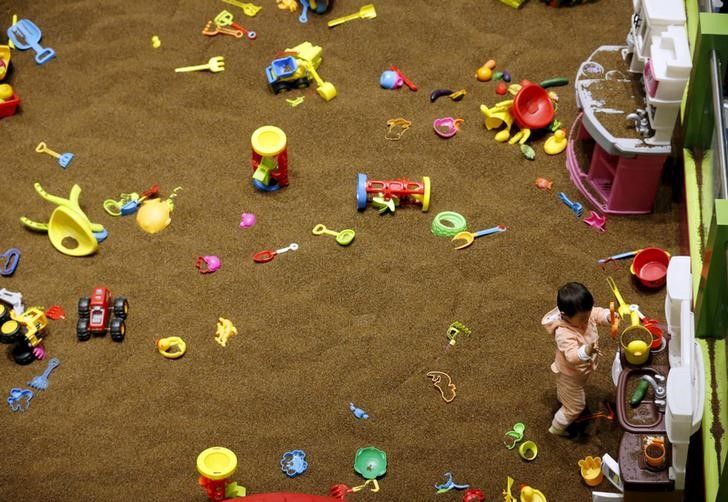
Quora Questions are part of a partnership between Newsweek and Quora, through which we'll be posting relevant and interesting answers from Quora contributors throughout the week. Read more about the partnership here.
Quora Question: What Are the Underlying Reasons Why China is Ending the One-Child Policy?
Answer from Paul Denlinger, former resident of China, Taiwan, and Hong Kong, fluent in written and spoken Mandarin:
The one-child policy is a policy that the Chinese government has relied on for far too long; it should have ended 15 years ago because if that had been the case, the first batch of second-children families would be thinking about entering university and technical colleges soon, shortly after 2015.
By lifting the one-child policy in 2015, this means that these "extra" children will not begin to enter the workforce until 2035. This means that Chinese society will be going through a period of at least 20 years where the workforce is aging. This also means that tax revenue from income tax will also shrink during this period. And this happens at a time just when China needs to shift from reliance on investment to reliance on tax revenue.
Any way you look at it, this is a policy change that has come too late. If the government made this decision much earlier, China could have managed to soften the impact of the economic slowdown it is now going through in 2015. The situation is summed up by a Chinese saying: 远水救不了近火, which means "faraway water will not put out a nearby fire."
This happened because no one in the Chinese government was willing to stand up and make this call and implement this decision.
Social planning with regards to human reproduction is not something which can be turned on and off like a switch by Beijing party bureaucrats. In fact, the party had been softly lifting the one-child restriction in major cities for the past two years.
However, most one-child families have continued with only one child, and have chosen not to have a second child because:
- While giving birth to a child is not expensive; raising a child is very expensive, especially when you consider education costs in China. Chinese society has been highly competitive for hundreds of years, and the competitive civil service exams have been around for 1,600 years. This means that the Chinese educational system is all about exam success and getting into the right schools. Getting into the right schools is very expensive. This means that having a second child is a huge extra expense for Chinese families.
- The Chinese economy is going through a period of readjustment, and no one knows how it will manage the transition. If prospective parents are not sure that they will have jobs and the right skills, they will choose not to have a second child because they do not want to carry the extra risk.
Another factor is that parents will think about what the world and Chinese economy will be like in 20 years, when their child enters the workforce. It is hard for them to have confidence in an economy that is changing so much so fast.
This means that the Chinese economy is likely to have a gradually shrinking and rapidly aging workforce. Those Chinese who can afford it would prefer to emigrate from China rather than stay.
This means that China will only have the Chinese who can't leave China. Those who have the ways and the means will be living outside China as Americans, Canadians, Australians, New Zealanders, and Brits, along with every other nationality in the world.
What are the underlying reasons that China is ending the One-Child Policy? originally appeared on Quora: The best answer to any question. Ask a question, get a great answer. Learn from experts and access insider knowledge. You can follow Quora on Twitter, Facebook, and Google+. More questions:
- China Ending One-Child Policy (October 2015): What are the disadvantages of China's two-child policy?
- China: What are some unknown facts about China?
- Politics of China: Why is it that a lot of Chinese people don't feel oppressed by their regime?
Uncommon Knowledge
Newsweek is committed to challenging conventional wisdom and finding connections in the search for common ground.
Newsweek is committed to challenging conventional wisdom and finding connections in the search for common ground.
About the writer
To read how Newsweek uses AI as a newsroom tool, Click here.








